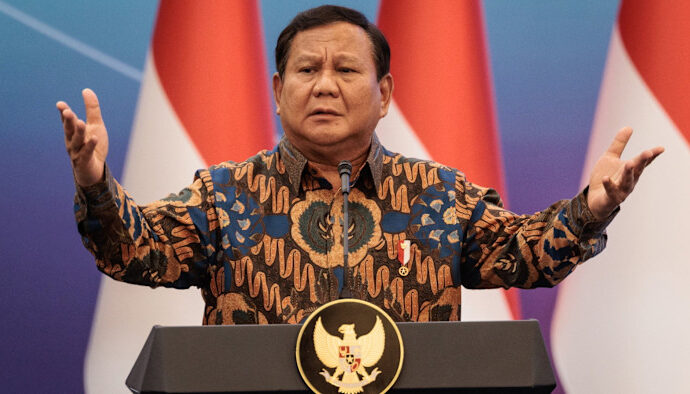Stay informed with free updates
Simply sign up to the Russian business & finance myFT Digest — delivered directly to your inbox.
Russian state-owned nuclear monopoly Rosatom is preparing to raise funds on the Chinese bond market, underscoring Moscow’s growing reliance on Beijing as ties between the two countries deepen.
Confirmation of the plans by a Rosatom representative came after the Financial Times reported on Sunday that China was preparing to reopen its domestic bond market to Russian energy companies.
Rosatom, which builds nuclear power plants and exports enriched uranium, declined to comment on the possible timing of a sale in China of such renminbi “panda bonds” or on how much it might seek to raise.
A bond sale could help Rosatom’s international expansion and make it the first Russian company to tap China’s onshore public market for ‘panda bonds’ since aluminium producer Rusal in 2017.
State news agency Interfax on Monday quoted deputy finance minister Ivan Chebeskov as saying other Russian companies were also interested in selling ‘panda bonds’.
“The discussion is ongoing, we are working out how best to do it,” Interfax quoted Chebeskov as saying.
Other potential candidates include gas and oil company Gazprom, which last week signed a long-awaited agreement on the Power of Siberia 2 pipeline with China during Russian President Vladimir Putin’s visit to the country. Gazprom did not respond to requests for comment.
During Putin’s visit to China, Alexey Likhachev, Rosatom’s director-general and a member of the president’s delegation, pledged to “help China overtake the US” in nuclear power.
Russia had already built four reactors of more than one gigawatt each in China and was constructing another four, Likhachev said in an interview with a Russian television channel last Wednesday.
Rosatom is also the Russian agency responsible for the Northern Sea Route, the shorter shipping lane from Europe to China that runs entirely through Arctic waters and is only navigable for part of the year.
China and India were considering redirecting part of their transit cargo through the route, Likhachev said last week.
“The tougher the external pressure on us, the more efficient our co-operation becomes,” he added. “I would say, the more obvious its inevitability.”
Russian companies have been turning to alternative sources of funding since US and European sanctions blocked access to global financial markets in 2022 and interest rate increases made borrowing increasingly expensive at home.
Unlike most of Russia’s energy majors, Rosatom itself has so far avoided direct EU and US sanctions, with restrictions limited to a clutch of its subsidiaries that have been targeted by the US, UK, Australia and Ukraine.
In January 2025, Washington also blacklisted senior members of Rosatom’s leadership, including Likhachev, who has called the list a “roll of honour”.
Rosatom will also need funding for its domestic expansion. In early 2025, the Russian government approved the construction of several large nuclear power plants.
Likhachev said last week that Rosatom would need to “systematically borrow resources” for nuclear plant construction in 2028—29. “Our path will not be strewn with roses,” he added.
Alexander Gabuev, director of the Carnegie Russia Eurasia Center in Berlin, said China had previously been cautious about Russian fundraising because of concerns about secondary sanctions.
However, Gabuev said Beijing now felt “more confident”, believing its dominance of rare earths supplies had increased its leverage and viewing the Trump administration as less likely to impose sanctions that its predecessor.
Rosatom was the most logical choice for a test ‘panda bond’ sale, since it would be harder to impose sanctions on it than on other Russian energy groups, he said.


